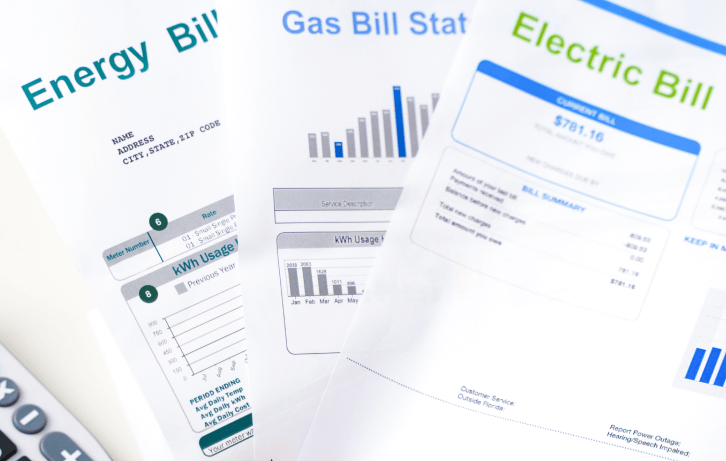Crucial Insights into Home Energy Assistance Programs (HEAP)
Home Energy Assistance Programs (HEAP) play a vital role in supporting individuals and families facing challenges in meeting their energy needs. These programs aim to provide financial assistance to ensure that households can maintain a safe and comfortable living environment. In this article, we will delve into crucial insights into HEAP, exploring its purpose, eligibility criteria, benefits, and how individuals can access this valuable resource to alleviate the financial burden of energy expenses.

Understanding the Purpose of HEAP:
Financial Assistance:
Utility Bill Support: HEAP assists eligible households in paying their utility bills, ensuring that they
can maintain essential services such as heating and cooling.
Emergency Assistance: Some HEAP programs offer emergency assistance to address immediate energy-related
crises, such as heating system failures during the winter.
Promoting Energy Efficiency:
Weatherization Programs: HEAP may include initiatives to improve the energy efficiency of homes, such as
weatherization programs that focus on insulation, sealing drafts, and upgrading heating systems.
Reducing Energy Costs: By enhancing energy efficiency, HEAP aims to reduce overall energy costs for
eligible households.
Eligibility Criteria for HEAP:
Income Limits:
Varied Criteria: Eligibility for HEAP is often based on household income, with specific income limits
determined by federal or state guidelines.
Consideration of Household Size: The size of the household is a crucial factor in determining
eligibility, as larger households may have higher income limits.
Vulnerable Populations:
Priority for Vulnerable Groups: HEAP often prioritizes vulnerable populations, including seniors,
individuals with disabilities, and families with young children.
Medical Conditions: Some programs consider medical conditions that may be exacerbated by extreme
temperatures, giving priority to households with individuals who are medically at risk.
Application Process for HEAP:
Online and In-Person Applications:
Online Platforms: Many HEAP programs allow applicants to apply online through dedicated websites or
portals.
Local Offices: In-person applications can be submitted at local social service or community action
offices.
Documentation Requirements:
Proof of Income: Applicants typically need to provide documentation of income, such as pay stubs, tax
returns, or proof of government assistance.
Utility Bills: Submission of recent utility bills may be required to demonstrate the need for
assistance.
Application Periods:
Seasonal Deadlines: HEAP programs often have specific application periods, especially for heating
assistance during the colder months.
Year-Round Emergency Assistance: Some programs offer year-round emergency assistance for situations like
utility shutoffs.
Benefits and Assistance Provided by HEAP:
Regular and Emergency Benefits:
Regular Benefits: HEAP provides regular benefits to assist with ongoing energy expenses, such as
monthly utility bills.
Emergency Benefits: In cases of immediate need, emergency benefits may be available to address urgent
energy-related crises.
Weatherization Programs:
Improving Home Efficiency: HEAP may offer weatherization programs that enhance the energy efficiency of
homes, reducing long-term energy costs.
Upgrading Heating Systems: Upgrading or repairing heating systems may be part of weatherization
initiatives.
Information and Education:
Energy-Saving Tips: HEAP programs often provide information and education on energy-saving tips,
empowering households to reduce energy consumption.
Program Awareness: Outreach efforts aim to increase awareness of HEAP and its benefits among eligible
individuals and communities.
Accessing HEAP and Additional Resources:
Community Action Agencies:
Local Assistance: Community Action Agencies often play a central role in administering HEAP at the local level, providing assistance with the application process and distributing benefits.
State and Federal Agencies:
State-Level Programs: HEAP is administered at the state level, and individuals can access information
and apply through state social service or energy offices.
Federal Programs: Some HEAP programs receive federal funding, and individuals may find resources and
support through federal agencies.
Partner Organizations:
Collaboration with Nonprofits: Nonprofit organizations often collaborate with HEAP programs to reach and
assist vulnerable populations.
Local Partnerships: HEAP may partner with local organizations to conduct outreach and provide additional
resources
Home Energy Assistance Programs (HEAP) offer crucial support to individuals and families grappling with the financial challenges of meeting their energy needs. By understanding the purpose, eligibility criteria, and application process, eligible households can access valuable benefits to maintain a safe and comfortable living environment. HEAP not only provides financial assistance but also promotes energy efficiency and offers resources for long-term stability. As a lifeline for those facing energy-related hardships, HEAP serves as a vital tool in enhancing the well-being of communities and ensuring that all individuals can affordably and comfortably meet their energy needs.
